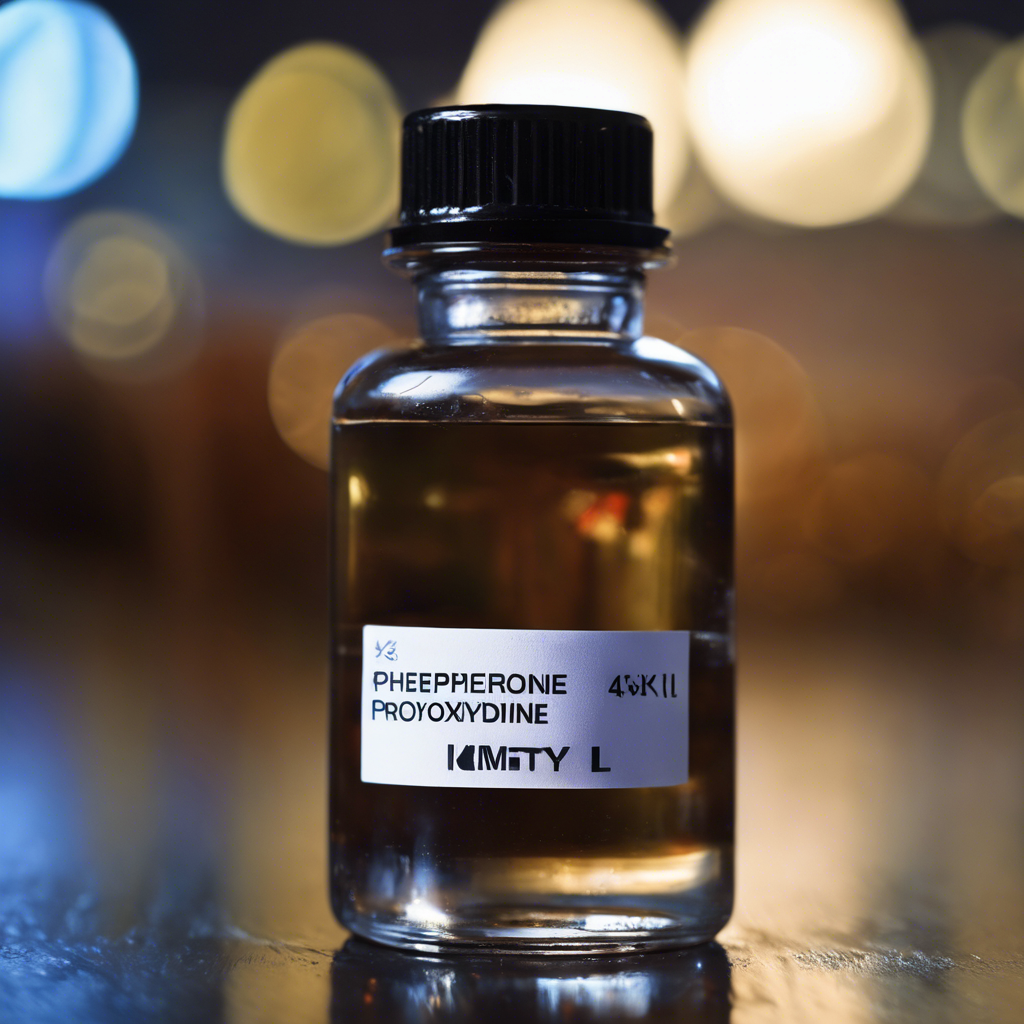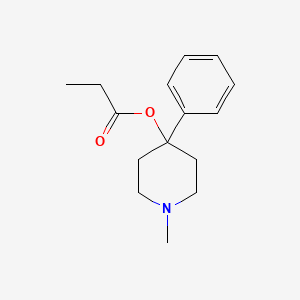|
Name: 1-Methyl-4-phenyl-4-propionoxypiperidine
Type: Synthetic opioid
AKA: MPPP, synthetic heroin

|
|
II. Natural Derivative
Synthetic substance, no natural derivative
 |
|
III. Chemical Profile (IUPAC name)

|
|
IV. History
1-Methyl-4-Phenyl-4-Propionoxypiperidine, a synthetic compound, was developed in the 20th century. It is part of research into new psychoactive substances and their effects on the central nervous system.

|
|
V. Legal Information
1-Methyl-4-phenyl-4-propionoxypiperidine is a chemical compound with potential applications in research. It is not widely regulated but may be controlled in certain jurisdictions due to its chemical properties. [Source: UNODC].
US Federal Schedule - I
Schedule I drugs, substances, or chemicals are defined as drugs with no currently accepted medical use and a high potential for abuse. Some examples of Schedule I drugs are: heroin, lysergic acid diethylamide (LSD), marijuana (cannabis), 3,4-methylenedioxymethamphetamine (ecstasy), methaqualone, and peyote.
Key US Federal Policies:
Controlled Substances Act. Public Law: Public Law 91-513 (text can be found on GovInfo) (https://www.dea.gov/drug-information/csa). Date enacted: October 27, 1970.
|
|
VI. Physical Effects
1-Methyl-4-phenyl-4-propionoxypiperidine, also known as MPPP, is a synthetic opioid with potent effects. As a downer, it causes sedation, reduced heart rate, and constricted pupils. Short-term use provides strong pain relief, while long-term use can lead to addiction and respiratory issues. Overdose risks include severe respiratory depression and potential death. Safe use requires strict adherence to medical guidelines. Recent research highlights its potent opioid effects and associated risks, emphasizing the need for cautious use.  |
|
VII. Psychological Effects
1-Methyl-4-phenyl-4-propionoxypiperidine, a synthetic opioid, affects opioid receptors, causing euphoria and cognitive impairment. Immediate effects include mood enhancement and pain relief, while long-term use can lead to dependence and psychological issues such as depression. Effects last several hours, with significant mental health risks with chronic use.
 |
|
VIII. Culture
1-Methyl-4-phenyl-4-propionoxypiperidine is a research chemical with stimulant properties, classifying it as an upper. Short-term use may increase alertness and energy, while long-term effects are not well-documented. Overdose risks include severe agitation and cardiovascular issues. Safe dosages are not well-established, with lower doses advised. Recent research focuses on its psychoactive potential and health risks. Physical effects may include increased heart rate, elevated blood pressure, and potential for severe agitation.
 |
